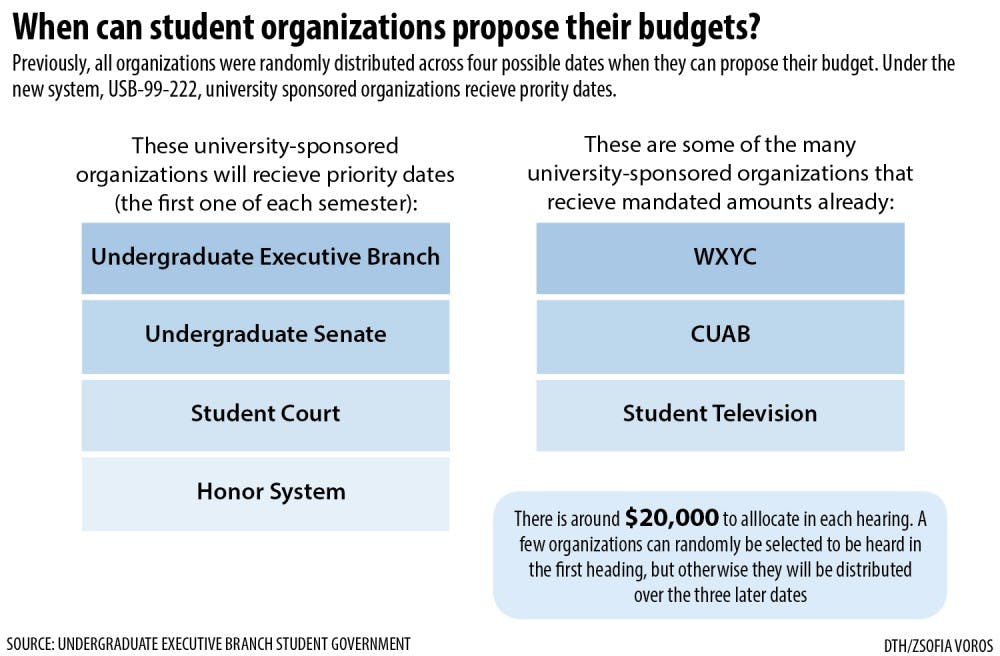Undergraduate Student Government officials are divided over the process by which student organizations receive funding. While some student senators want to prioritize the bodies of student government, others believe student government should not prioritize University sponsored organizations over regular student organizations that add vital diversity to campus.
Under the Undergraduate Senate’s current law, passed in November, University-sponsored organizations receive priority in presenting grant proposals to the Finance Committee. Each of the four hearings allocates roughly the same amount of money, but some organizations receiving funds earlier than others, with some not receiving any until late in the semester.
Rachel Augustine, finance committee chairperson of the Undergraduate Senate, has challenged this bill on the basis that it prioritizes the potential of University-sponsored groups to utilize funds. Augustine’s bill challenging this law has been opposed, with opponents arguing there are fundamental differences between University-sponsored organizations and regular student organizations. They claim the populations of students affected by regular student organizations are too small to receive priority funding.
Under the former system, student organizations were sorted randomly into four categories depending on the amount of money requested. Larger organizations would be paired with smaller organizations, so when that category’s presented proposals, the roughly $20,000 budgeted for each of the four dates could be spread proportionately across the student organizations. Aside from the size of the organizations, no discretionary preference was given to organizations for an earlier date. Augustine believes they should return to this system.
Tarik Woods, vice president of Budget and Finance for the UNC Association of Student Government, sponsored the current bill that Augustine opposes. This bill mandates the Undergraduate Executive Branch, Undergraduate Senate, Student Supreme Court and the Honor System have their funding requests heard by the Finance Committee in the first appropriation meeting of each semester, giving them funding opportunity before regular student organizations.
“I think it is extremely important that it is recognized the job that student government does in aiding every other student organization on campus,” Woods said. “In order to prevent student government from being ineffective, it’s necessary that they receive funding to do their jobs. That way they can help the hundreds of other student organizations.”
About 200 organizations in total apply for money from the finance committee.
The University-sponsored organizations, such as Carolina Union Activities Board and UNC Student Television, are mandated a certain amount of funding, usually around $4,000 per semester, said Augustine. In addition to this funding, these organizations may apply for auxiliary funds through the finance committee.
Student Government must also apply for funding, as it is allocated money to be distributed throughout other student groups, not just to be spread amongst their own bodies.



